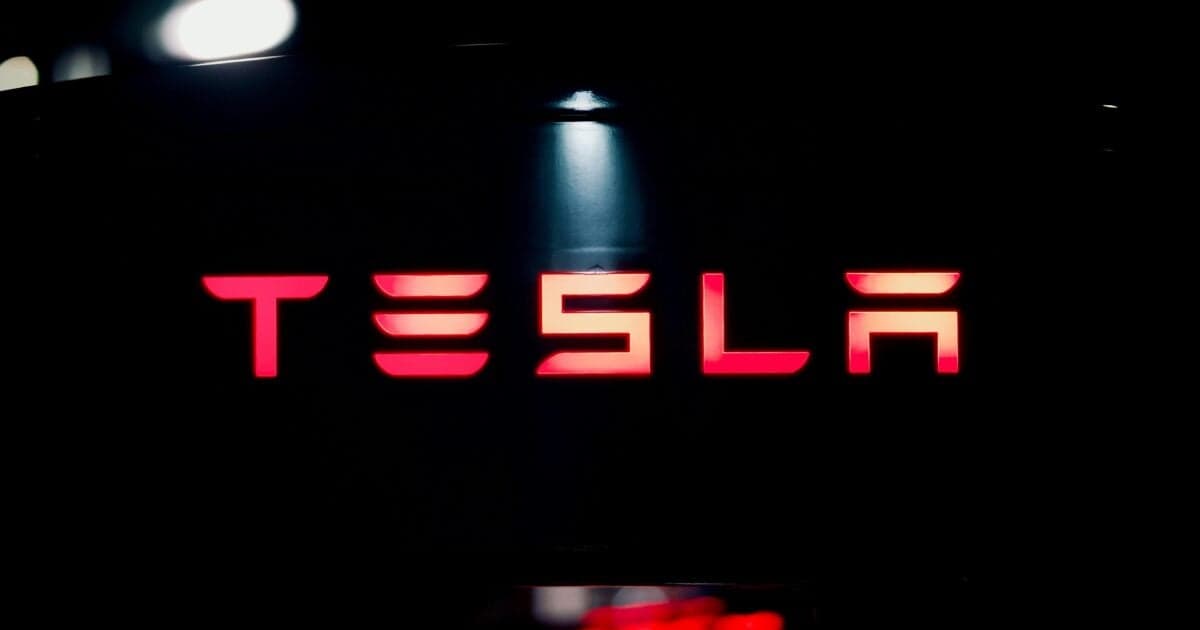Elon Musk Just Bought Tesla (TSLA) Stock for the First Time in Five Years... Should You?


An investor favorite is soaring to start the week...
Electric-vehicle maker Tesla (TSLA) is up 4% today, after CEO Elon Musk gave the stock a huge vote of confidence. On Friday, he bought nearly $1 billion in shares on the open market.
Musk has been a huge driver of Tesla's stock performance this year. The stock fell in early 2025 on concerns that the CEO was spending too much time working for the White House.
But on April 22, he announced he'd be spending less time at the Department of Government Efficiency. Tesla shares have surged nearly 70% since then.
Investors seem to be cheering that Musk's focus is back on Tesla.
With the stock back in an uptrend and sitting at the highest level since January, should you follow Musk's lead and load up on the stock today?
To answer that, we first have to look at how Tesla's various businesses have been performing...
Tesla's Auto Business vs. AI and Robotaxis
Tesla got its start as one of the first auto companies to mass produce an electric vehicle ("EV"). That made Tesla the clear leader in the space... According to Cox Automotive, Tesla controls about 46% of the total EV market in the U.S.
But that doesn't mean the company's auto business is thriving. Just consider Tesla's second-quarter results, released in July...
Both Tesla's earnings and revenue for the quarter fell short of Wall Street's estimates. Automotive revenue came in at $16.7 billion, down 16% from the same quarter a year ago. And global vehicle deliveries fell 13%.
Tesla's auto revenue is down more than 20% from the second quarter of 2023, with two straight years of declines. Overall revenue fell 12% from the prior year, its steepest decline since 2012.
But while the auto business struggles, Tesla has branched out into other areas...
Tesla is working on turning its cars into self-driving taxis. It has an AI-driven humanoid robotics division. And it's even working on battery storage.
In fact, on its second-quarter earnings call, Elon Musk said that "autonomy is the story."
But Tesla only recorded about $3 billion in revenue that wasn't tied to its auto segment in the second quarter. So as much as Musk and Tesla investors might be looking forward to robotics, it is still very much a car company at the moment.
And its self-driving business has already faced some snags. Tesla's robotaxi division is under investigation from regulators after allegations that the company has failed to report accidents in a timely manner.
These divisions all have significant potential to boost Tesla's business if it can build the same leading position that it did with EVs. But that is far from guaranteed. And these industries are just getting started. So it will take years to know who comes out on top.
How Tesla Insiders Are Trading the Stock
We've also seen more selling than significant buys from Tesla's insiders...
Insiders typically know the most about a company's operations and how it is performing – so their activity can be used as a gauge of sentiment. When they buy, it shows they're willing to put skin in the game.
Over the past 12 months, insiders have sold nearly $670 million worth of stock. That includes Elon's own brother Kimball Musk, who has offloaded more than $75 million worth of shares over the past year.
In fact, before last week, only one Tesla insider had purchased shares on the open market over the past 12 months. Director Joseph Gebbia bought about $1 million worth of shares in April. But even his purchase was outweighed by $33 million in insider sales that month, according to FinViz.
On Friday, that trend changed. Again, Musk bought more than 2.5 million shares on the open market – worth about $1 billion. That marked Musk's first open-market purchase since February 2020, and it was the largest insider purchase Musk has ever made.
That's a huge buy. And it got the market's attention.
With Musk's focus largely back on his company, and this new sign of confidence in the company's operations, investors piled into the stock today.
What the Stansberry Score Says About Tesla
Telsa receives a total score of 61 on our proprietary Stansberry Score. That's a grade of B.
On the surface, that looks like Tesla would be a good investment. But under the hood, the picture is less clear...
Tesla receives a grade of C for its capital efficiency. That's because building cars is an extremely capital-intensive business. While Tesla has launched more capital-efficient divisions like software (which is more scalable), the automaking segment is still weighing down this measure.
The stock gets a "D" grade for valuation, too. Right now, Tesla trades at a price-to-earnings (P/E) ratio of nearly 200.
That's staggering – well above the overall market's P/E ratio of 27. And it's astronomically high compared to auto competitors Ford (F) and General Motors (GM), which have P/E ratios of 15 and 9, respectively.
So our Stansberry Score is telling us we can find better long-term investment opportunities.
Whitney's Take on Tesla's Numbers
Stansberry's Investment Advisory editor Whitney Tilson dove into Tesla's second-quarter numbers and the company's overall financials in the July 24 issue of his free daily e-letter. As Whitney wrote...
Reviewing Tesla's key metrics over the past three years, it's hard to see much overall growth – and the recent trends have been poor. Here are the exact tables from page 21 of the shareholder deck:
On the conference call yesterday, CEO Elon Musk acknowledged the company "probably could have a few rough quarters."
And Whitney agrees with the Stansberry Score that Tesla's shares are expensive, factoring in earnings before interest, taxes, depreciation, and amortization ("EBITDA"), a measure of profitability. More from Whitney...
With trailing-12-month revenue of $92.7 billion and adjusted EBITDA of $15.3 billion, it's trading around 11 times enterprise value ("EV") to revenue and 68 times EV to EBITDA.
And with $1.99 of trailing adjusted earnings per share, that gives the stock a staggering P/E multiple of around 152 times.
That puts Tesla shares "light-years away" from a valuation where Whitney would consider buying the shares.
Whitney Tilson's Latest AI Stock Opportunity
It's no secret that AI has had a huge impact on investing over the past 18 months. Companies like $4 trillion chipmaker Nvidia are soaring because of their roles in the AI trend, and companies are trying to figure out how to best play AI – like Tesla is with its robotaxi and robotics division.
Not only that, but AI has created new tools and become a way of investing in itself.
Hedge funds like AQR Capital Management (led by billionaire investor Cliff Asness) and Bridgewater Capital (founded by legendary investor Ray Dalio) have launched funds that rely on AI to beat the market.
As Whitney put it in his new, free documentary, AI is creating a "drawbridge" for investors:
Wall Street is splitting in two because of what's happening.
A drawbridge is going up.
On one side will be those who embrace AI and continue to get richer and richer as a result.
On the other... sadly, everyone else will continue to fall further behind, with little to no chance of ever catching up.
That's why Whitney created an AI-driven, fully allocated model investment portfolio called the New Engine of Wealth ("N.E.W.") System.
Put simply, this system looks for the top 20 stocks on the market... stocks that meet our strict capital-efficiency, financial, and valuation criteria. Then it uses advanced simulations to assemble the optimal portfolio.
Of course, there's much more to it than that. Whitney gives a closer look at his N.E.W. System – and shows how it would have beaten stocks, bonds, gold in recent years – in his free presentation here.
Good investing,
Nick Koziol

